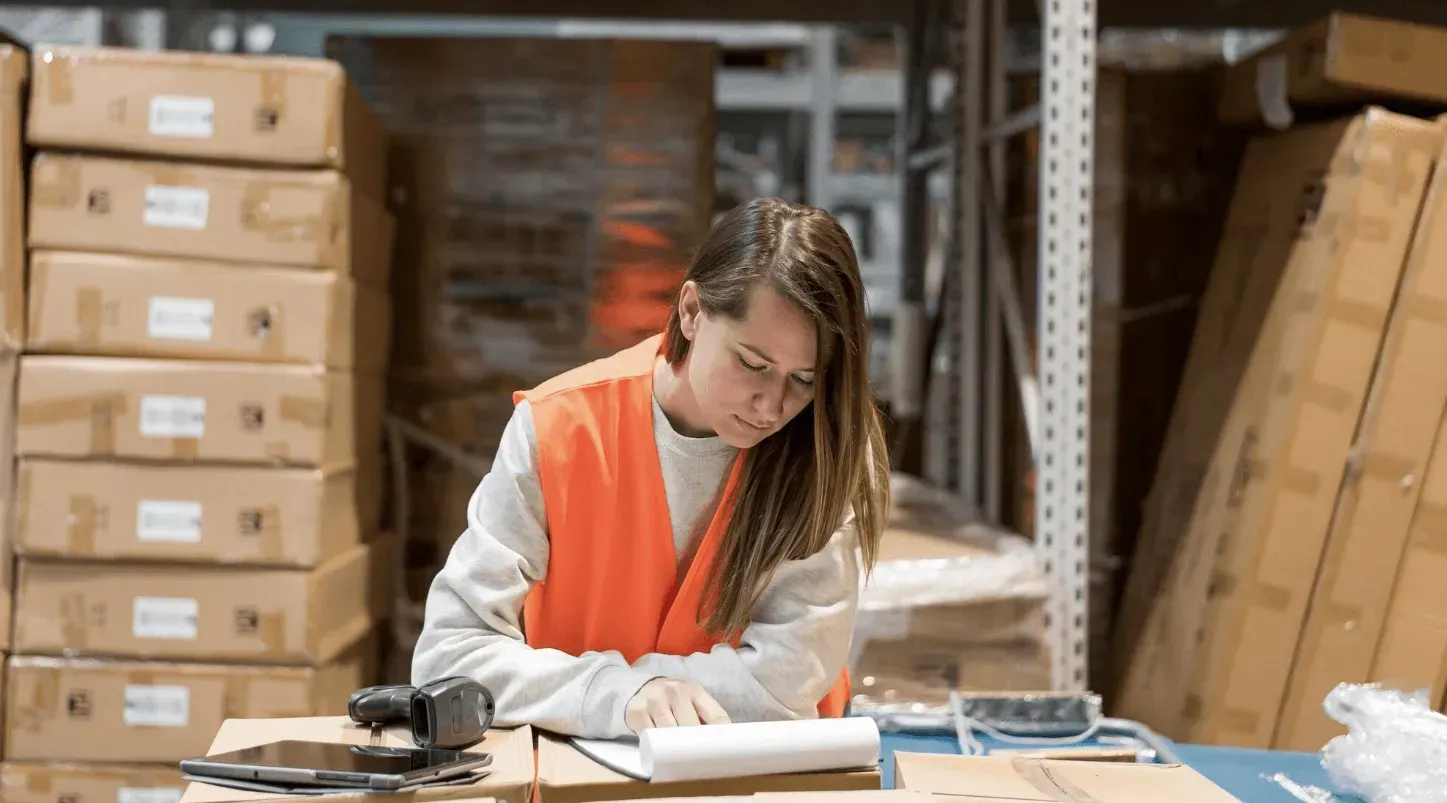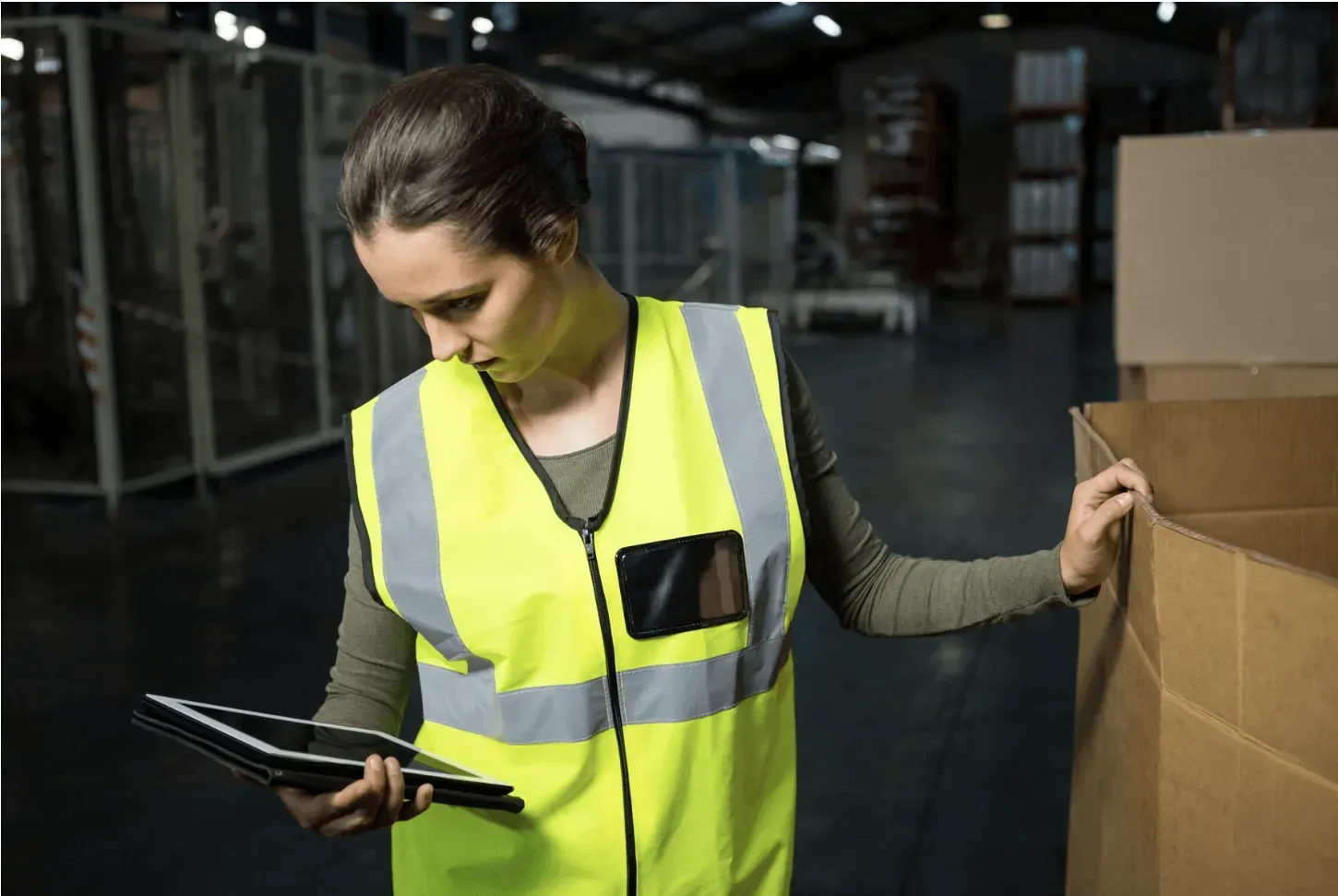Bonded Warehouse in Colombia

Export Intermediation Guide
A customs warehouse in Colombia is a facility authorized by DIAN (Colombia’s National Tax and Customs Directorate) to store goods under government supervision while import or export procedures are completed. This model streamlines international logistics, offering fiscal, operational, and strategic advantages for companies.
What Is a Customs Warehouse?
A customs warehouse is an officially designated physical space for storing goods without the immediate payment of duties or taxes. This allows companies to postpone their tax obligations until the cargo is nationalized, re-exported, or withdrawn for processing.
Key Benefits for Businesses
1. Tax Payment Deferral
Companies are not required to pay import taxes immediately upon goods arrival, improving cash flow management and financial planning.
2. Inventory Optimization
Customs warehouses allow for product release based on actual market demand, reducing extra storage costs or the risk of premature release.
3. Reduced Logistics Risks
By centralizing the handling of goods under clear regulations, companies can reduce errors and gain traceability in every movement.
Types of Customs Warehouses
Private Warehouses
- For transformation or assembly:
Designed for manufacturing companies that need to process goods within a maximum of 15 days. - For industrial processing:
Enabled for raw materials and supplies used in local production processes. These are exclusive to permanent customs users. - For international distribution:
Oriented toward transit and re-shipment operations, with a maximum storage period of one year.
Public Warehouses
Available to any foreign trade operator, these offer temporary storage for up to one month, with the option to extend. Ideal for variable-volume operations or goods with uncertain destinations.
Requirements for Operation
To function legally, all customs warehouse facilities must:
- Comply with strict security standards
- Obtain official authorization from DIAN
- Maintain an updated IT system to monitor goods
- Ensure the physical integrity of stored products

Available Customs Spaces in Colombia
Flexibility, Control, and Regulatory Compliance
Colombia offers various options for temporary goods storage, designed to support the dynamics of international trade without requiring companies to have their own private infrastructure.
Public Facilities for Foreign Trade
These are storage facilities accessible to any foreign trade operator who needs to store goods while completing import or export procedures. They offer operational flexibility without the need for a dedicated private warehouse.
Extended Storage Periods and Import Flexibility
One of the key advantages is the ability to extend the duration of goods in storage. This allows companies to manage customs operations more efficiently when facing potential documentation or logistics delays.
Temporary Warehouses: Tailored for Special Needs
Temporary warehouses are authorized on a short-term basis to address specific situations. They are particularly useful in operations requiring immediate handling, such as exceptional logistics events, contingencies, or high-volume flows over a limited period.
Regulatory Framework and Operational Obligations
The proper functioning of a customs warehouse in Colombia is regulated by DIAN and must comply with technical, operational, and security standards.
Obligations of Authorized Warehouses
1. Goods Management
They may only receive and store goods authorized under specific customs regimes such as import, export, or transit, ensuring optimal storage conditions.
2. Electronic Records
It is mandatory to maintain an updated IT system that logs every movement of the goods, enabling immediate traceability and real-time access by DIAN.
3. Security and Safekeeping
Facilities must have surveillance systems, access controls, and protocols to prevent theft, damage, or loss, ensuring the physical integrity of the stored products.
4. Reporting Irregularities
Any discrepancies between the documentation and the physical goods must be immediately reported to DIAN to avoid penalties and ensure transparency.
Authorization Process: Key Requirements
To operate a customs warehouse, a formal application must be submitted to DIAN, including:
- Official Request:
Detailing the type of goods, intended use of the warehouse, and its location. - Property Conditions:
With supporting documentation showing compliance with storage capacity and security measures. - Operational Protocols:
Describing procedures for the handling, logging, and safekeeping of goods.

Inspection, Oversight, and Future Outlook of Customs Warehouses
Initial Inspection and Approval Process
Once the authorization request is submitted, DIAN carries out a thorough technical inspection to ensure the warehouse meets all required standards for infrastructure, security, and operational procedures. Approval of this phase is essential for the facility to begin operations legally.
Ongoing Supervision and Customs Control
After authorization, the customs warehouse remains under continuous oversight by DIAN. Customs authorities conduct regular inspections to ensure regulatory compliance, prevent irregularities, and maintain secure and transparent operations. This ongoing surveillance strengthens traceability, combats smuggling, and safeguards the integrity of the logistics system.
Strategic Importance and Future of Customs Warehouses
Boosting Foreign Trade
Customs warehouses are key tools for energizing international trade by offering solutions that combine efficiency, tax savings, and logistical optimization. Among the main benefits for companies are:
- Deferred tax payments, freeing up financial resources for other operational areas.
- Immediate inventory availability without nationalization, enhancing strategic planning and market responsiveness.
- Added value through transformation or enhancement, allowing product adaptation prior to nationalization or export.
Regulatory Adaptation to the Global Environment
In a context of global commercial transformation, Colombian regulations have been adjusted to align with international standards. Recent reforms aim to:
- Simplify operational procedures and integrate best global practices.
- Strengthen oversight with clearer frameworks for logistics operators.
- Increase legal certainty and efficiency in the management of authorized warehouses.
Technological Innovation in Customs Management
Technological advances have redefined how customs warehouses are controlled and managed. Some applied innovations include:
- Real-time traceability systems to monitor the status and location of each cargo unit.
- Digital management platforms that automate records, alerts, inventories, and generate online reports—reducing errors and boosting productivity.
Official and Government Sources
- DIAN – National Tax and Customs Directorate
Official website with full regulations on customs warehouses and foreign trade
👉 https://www.dian.gov.co - VUCE – Single Window for Foreign Trade
Key information on authorizations and customs processes
👉 https://www.vuce.gov.co - Ministry of Commerce, Industry, and Tourism
Trade legislation, regulations, and internationalization strategies
👉 https://www.mincit.gov.co - Legiscomex (Legal platform for foreign trade in Colombia)
For referencing articles from the Customs Statute or recent reforms
👉 https://www.legiscomex.com
About the Author
Cristina Corrales Gallón
CEO and international trade specialist with over 15 years of experience in vehicle importation and nationalization processes in Colombia. Cristina has led customs operations for both private and corporate importers, ensuring full compliance with national regulations. She has worked closely with institutions such as DIAN, VUCE, and the Ministry of Commerce, Industry, and Tourism.






